Occupational Therapist Cover Letter Examples

May 29, 2025
|
12 min read
Craft a standout occupational therapist cover letter with these tailored tips. Discover how your words can be as therapeutic as your touch, helping you articulate your unique skills and connect effectively with potential employers.
Rated by 348 people
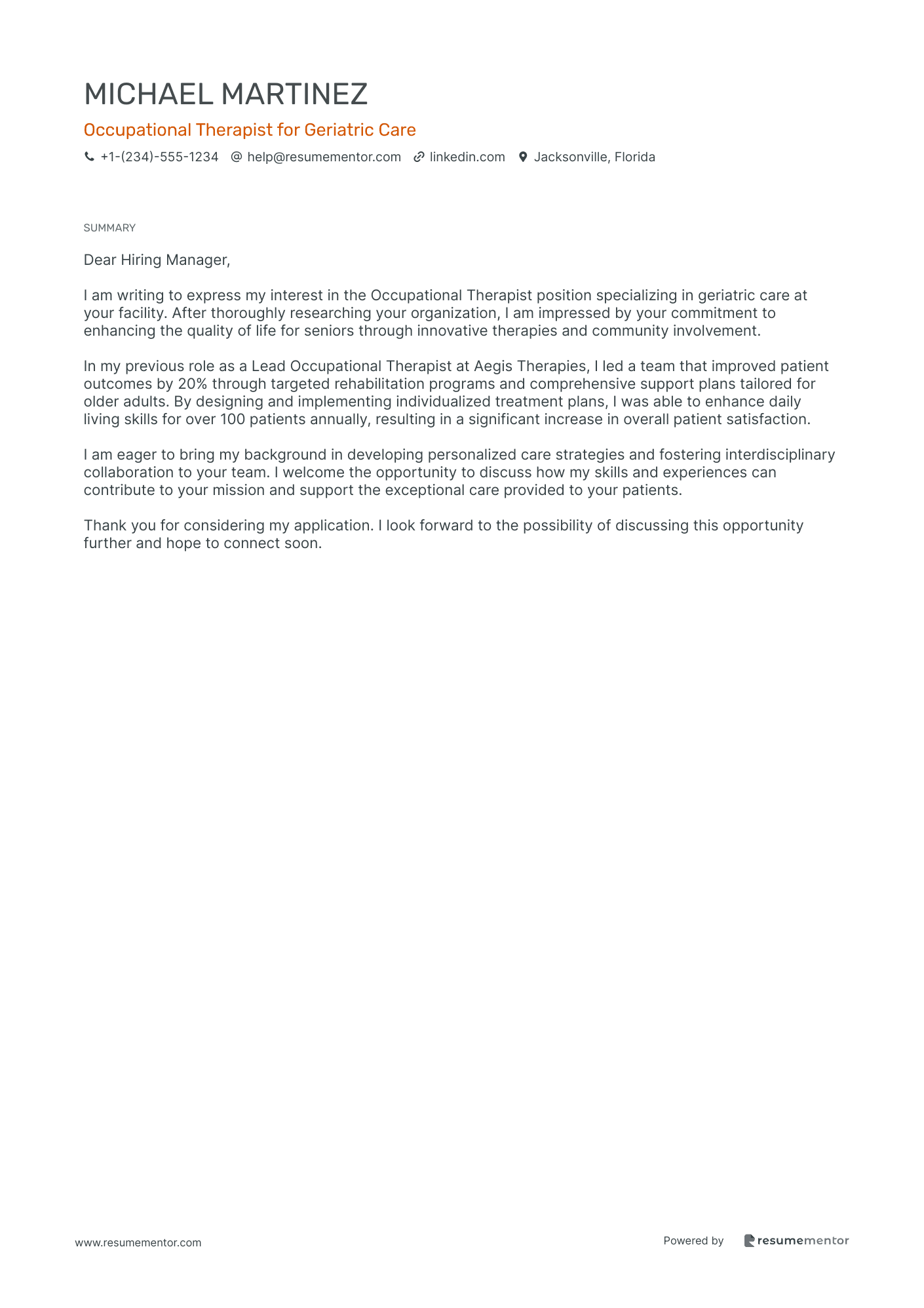
Occupational Therapist for Geriatric Care
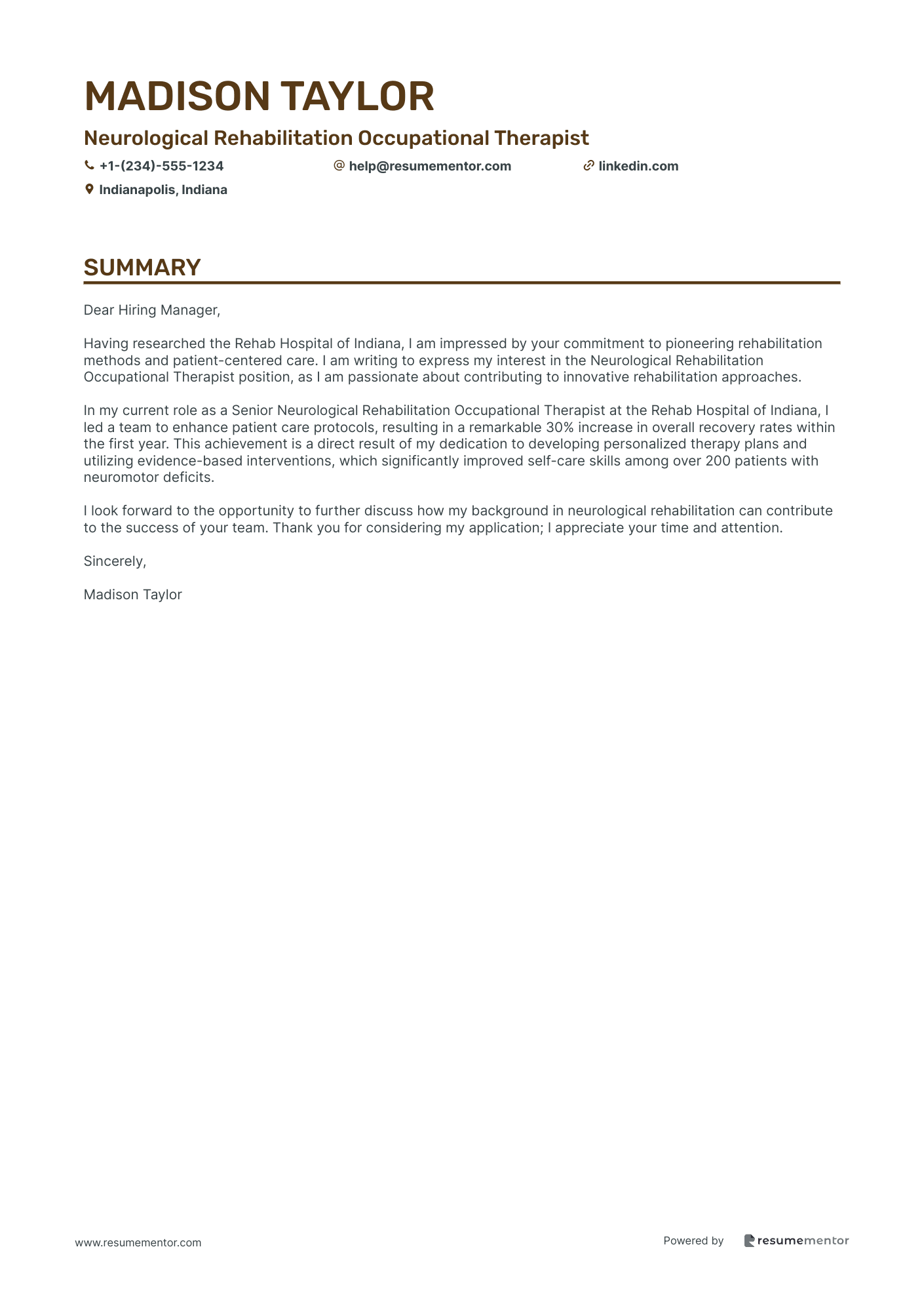
Neurological Rehabilitation Occupational Therapist
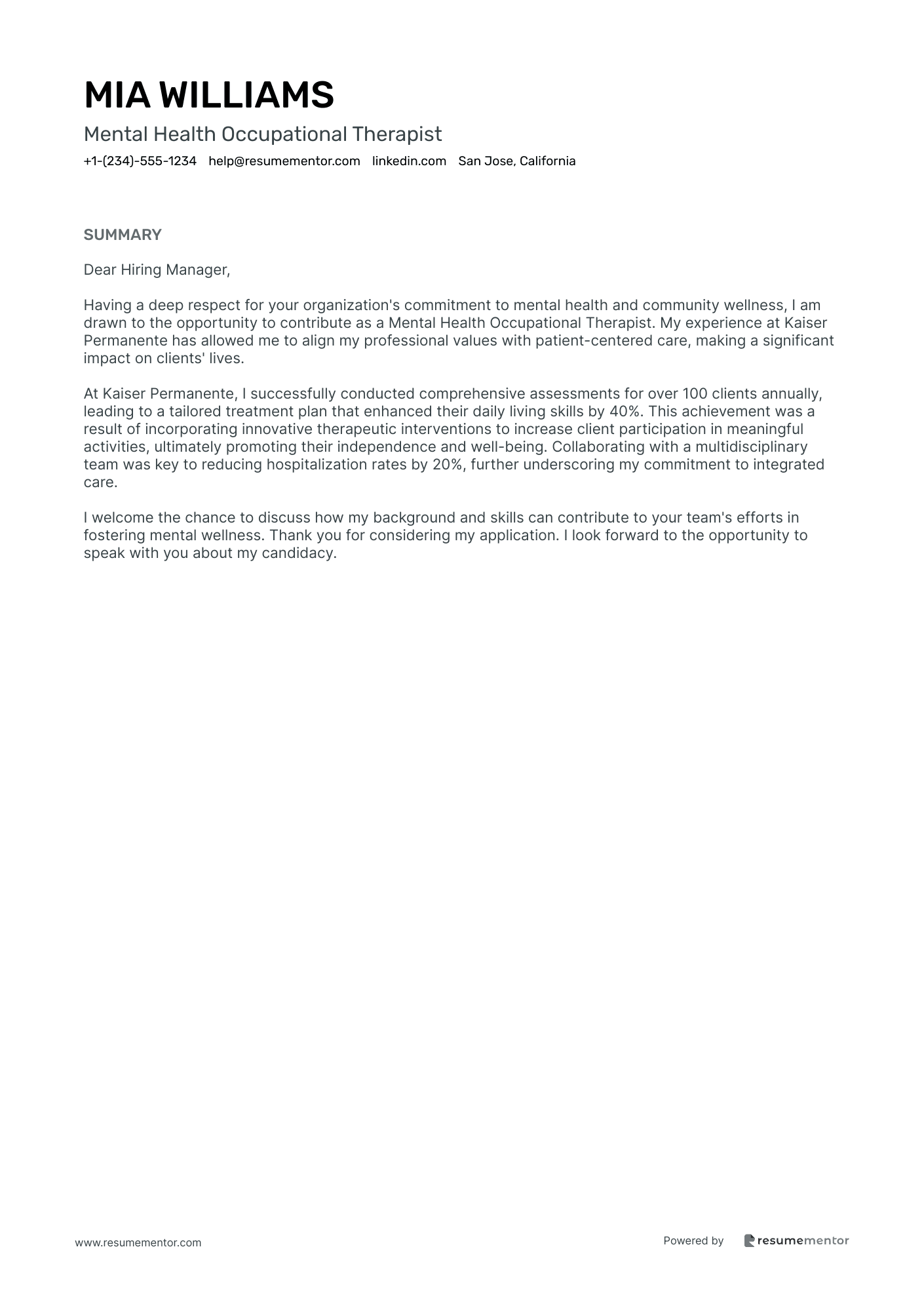
Mental Health Occupational Therapist
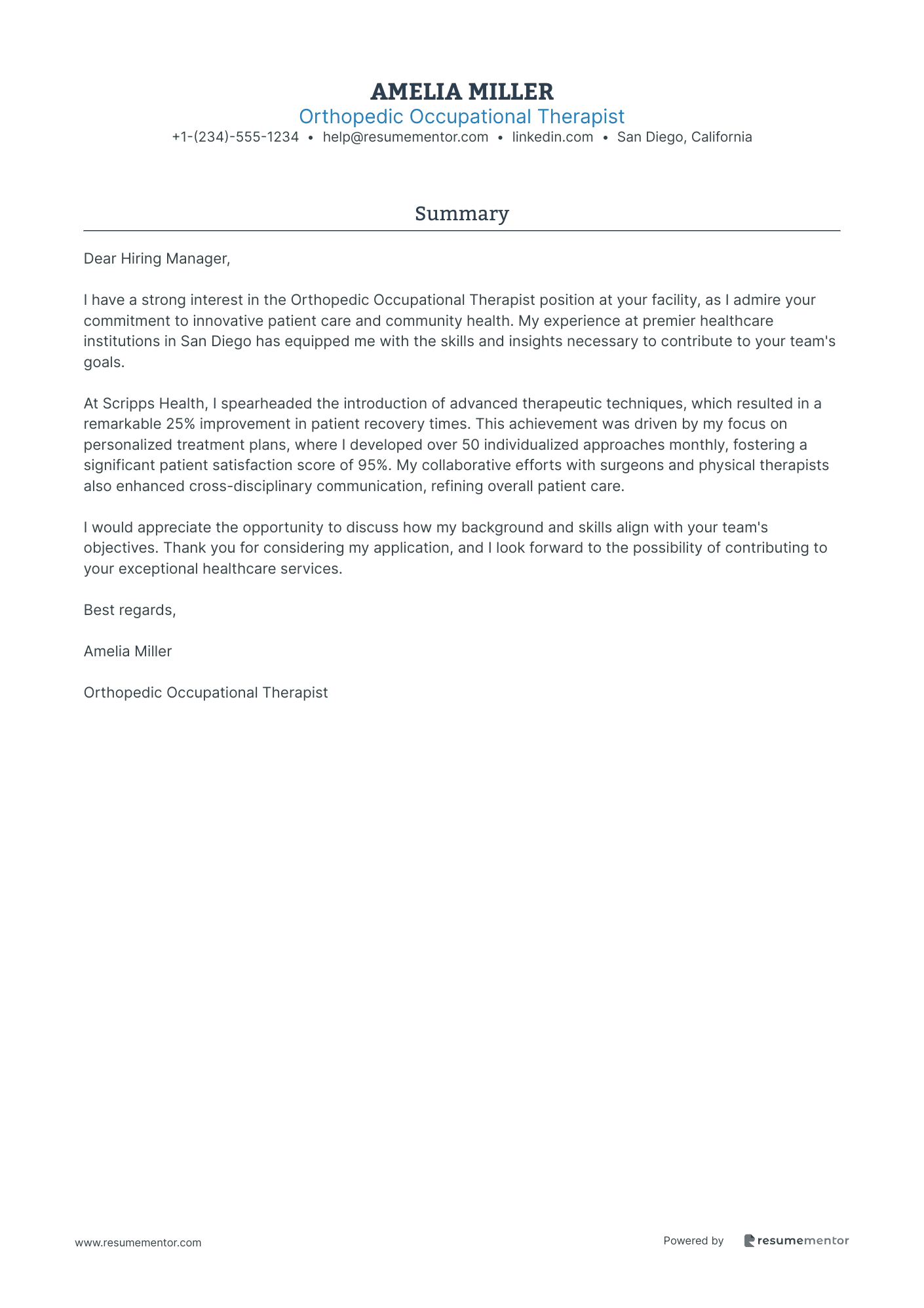
Orthopedic Occupational Therapist
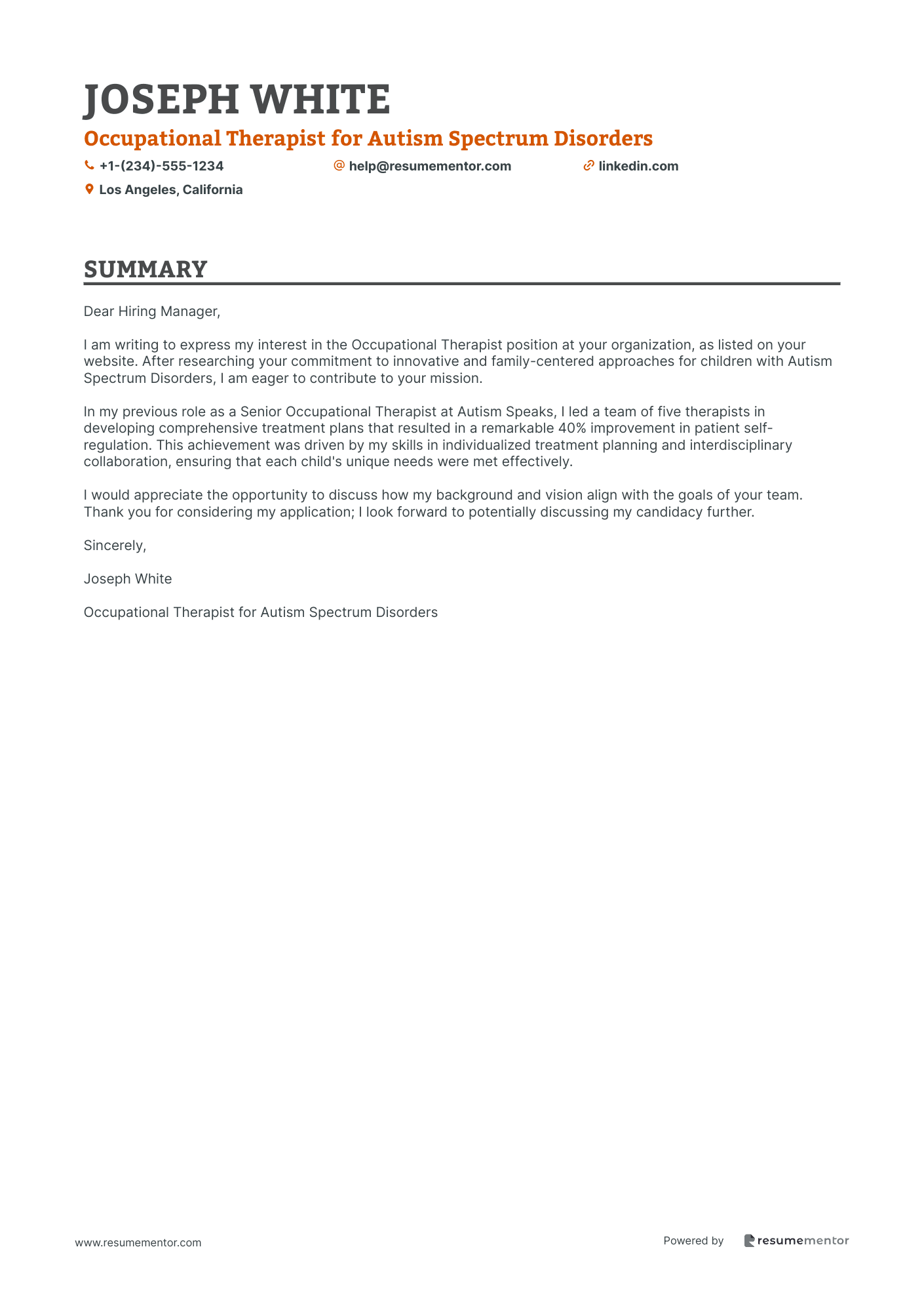
Occupational Therapist for Autism Spectrum Disorders
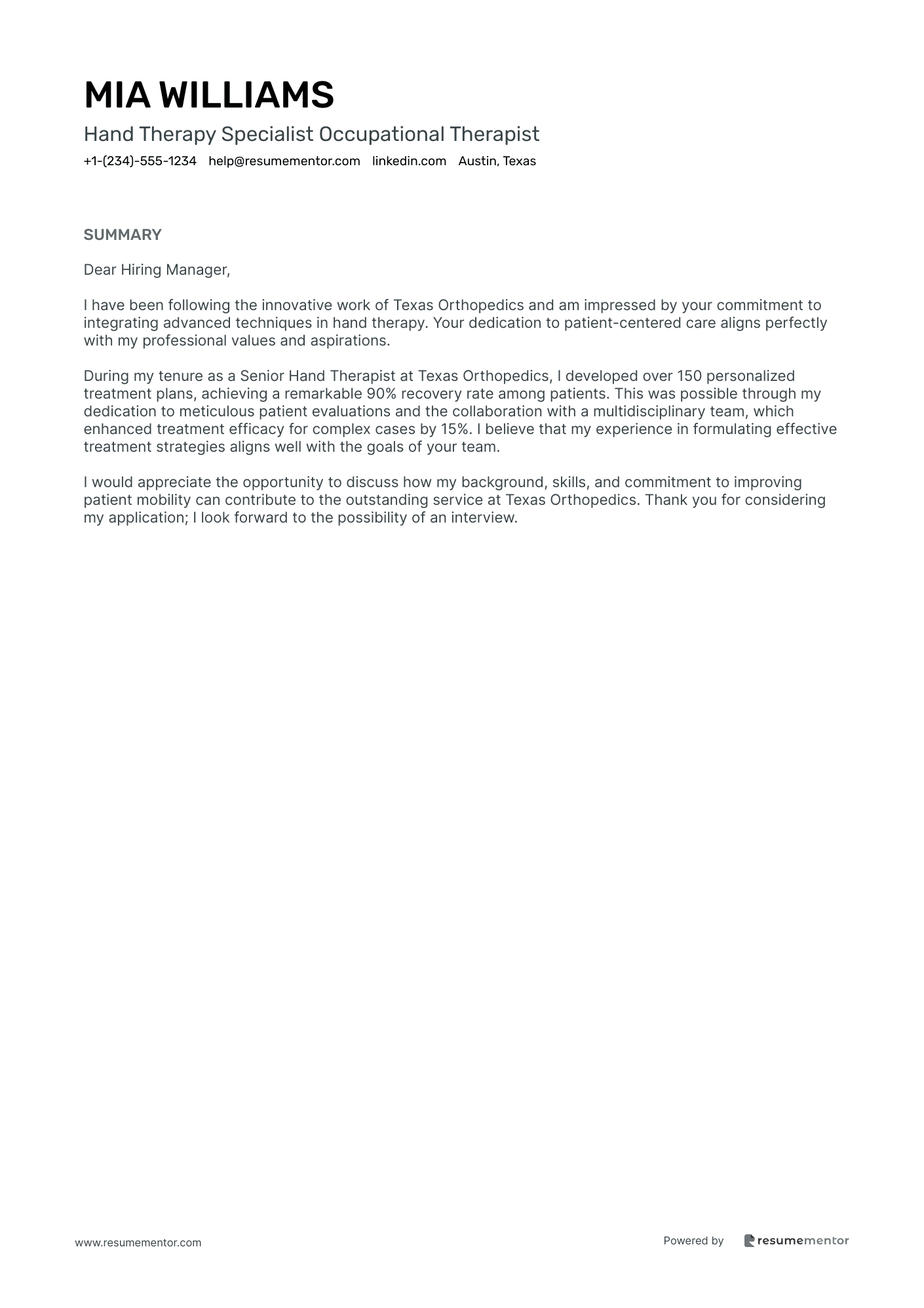
Hand Therapy Specialist Occupational Therapist
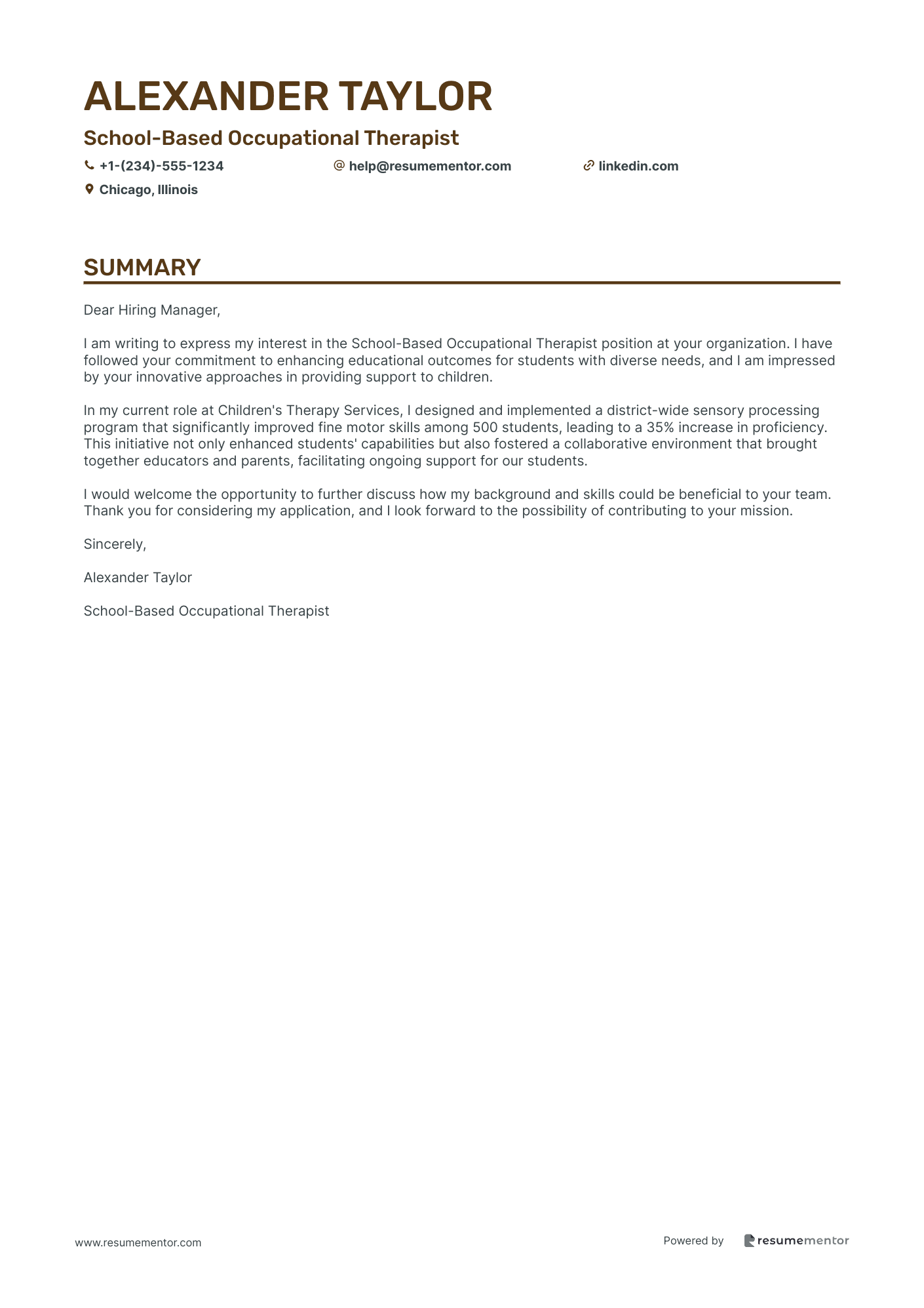
School-Based Occupational Therapist
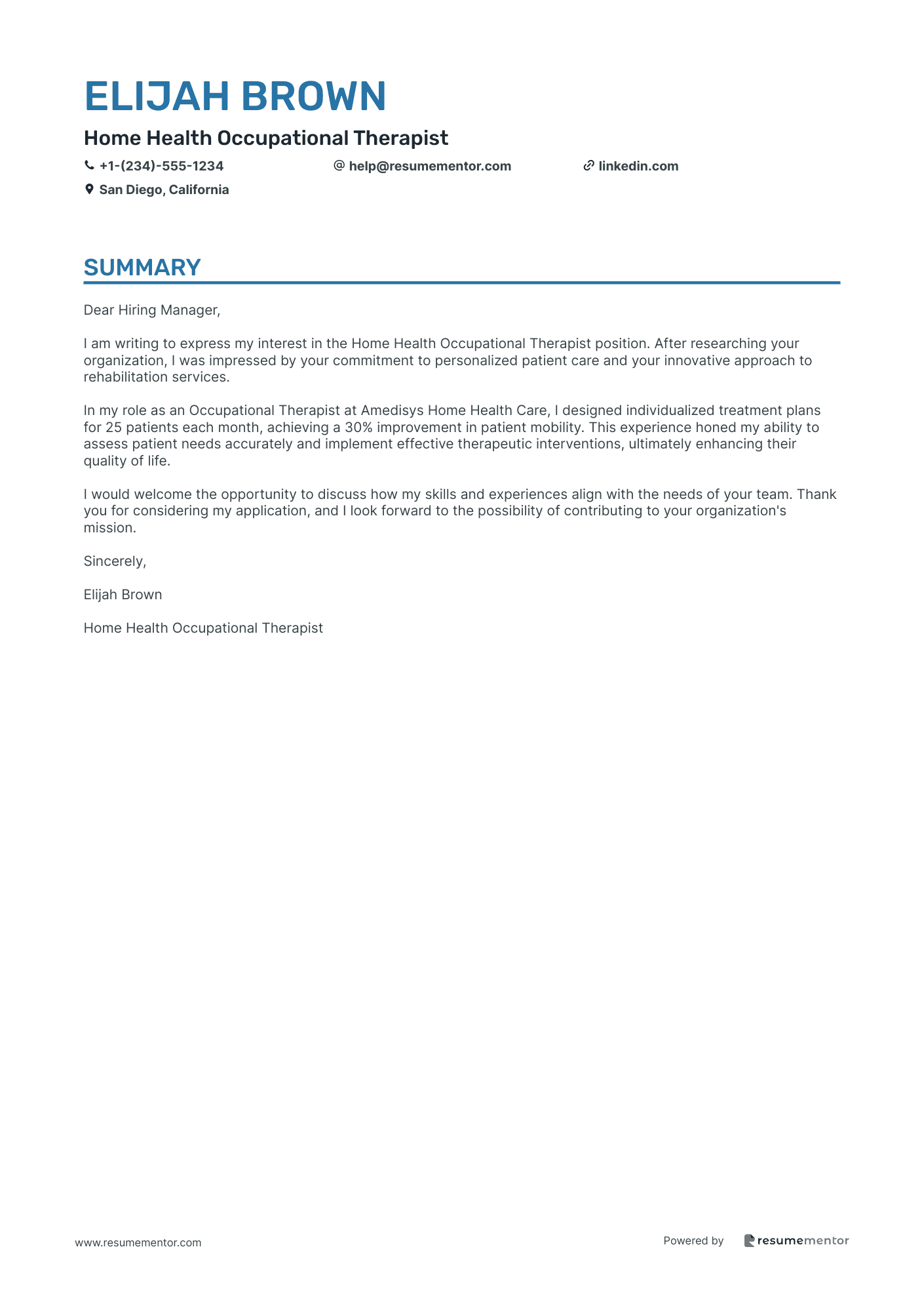
Home Health Occupational Therapist
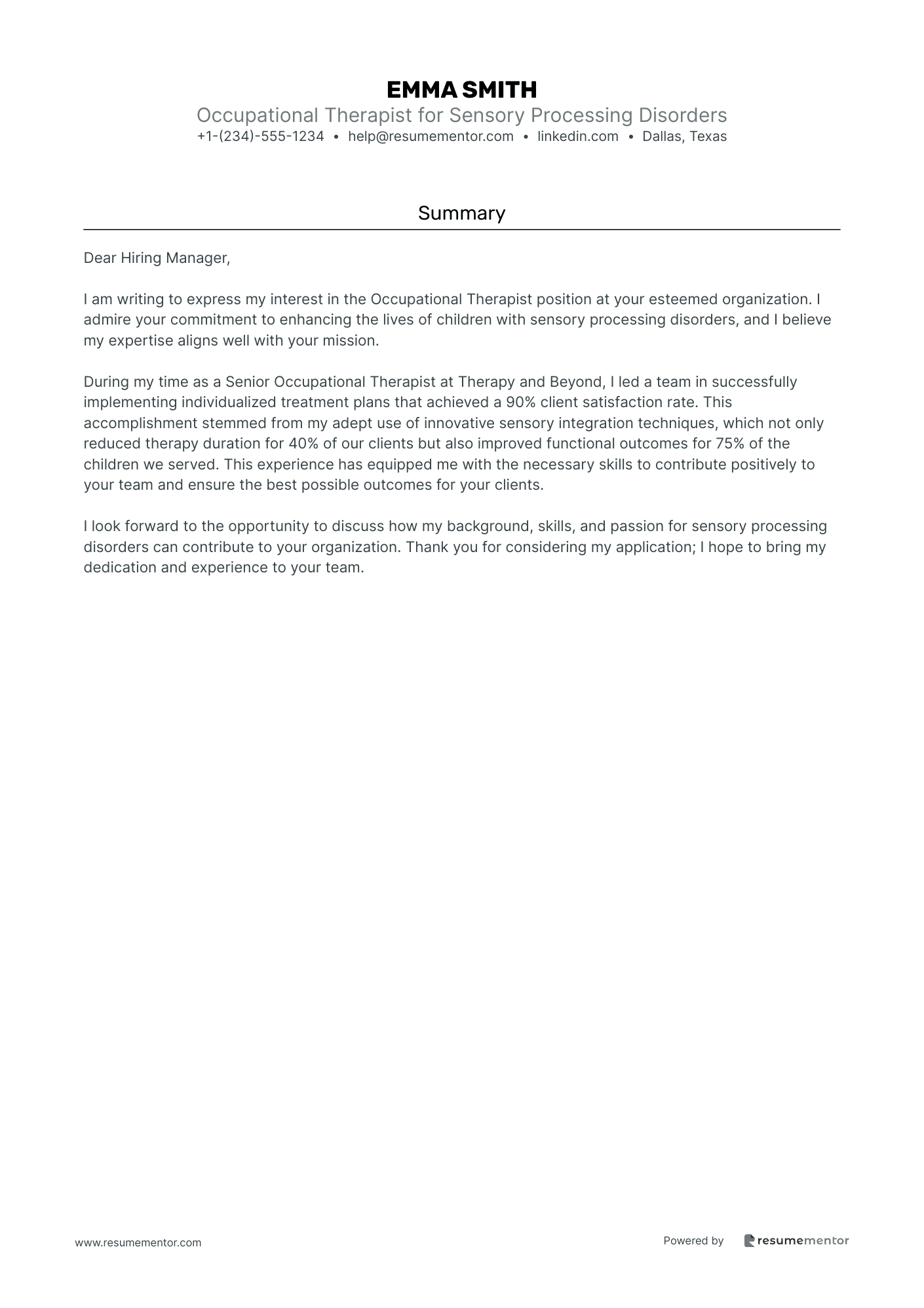
Occupational Therapist for Sensory Processing Disorders
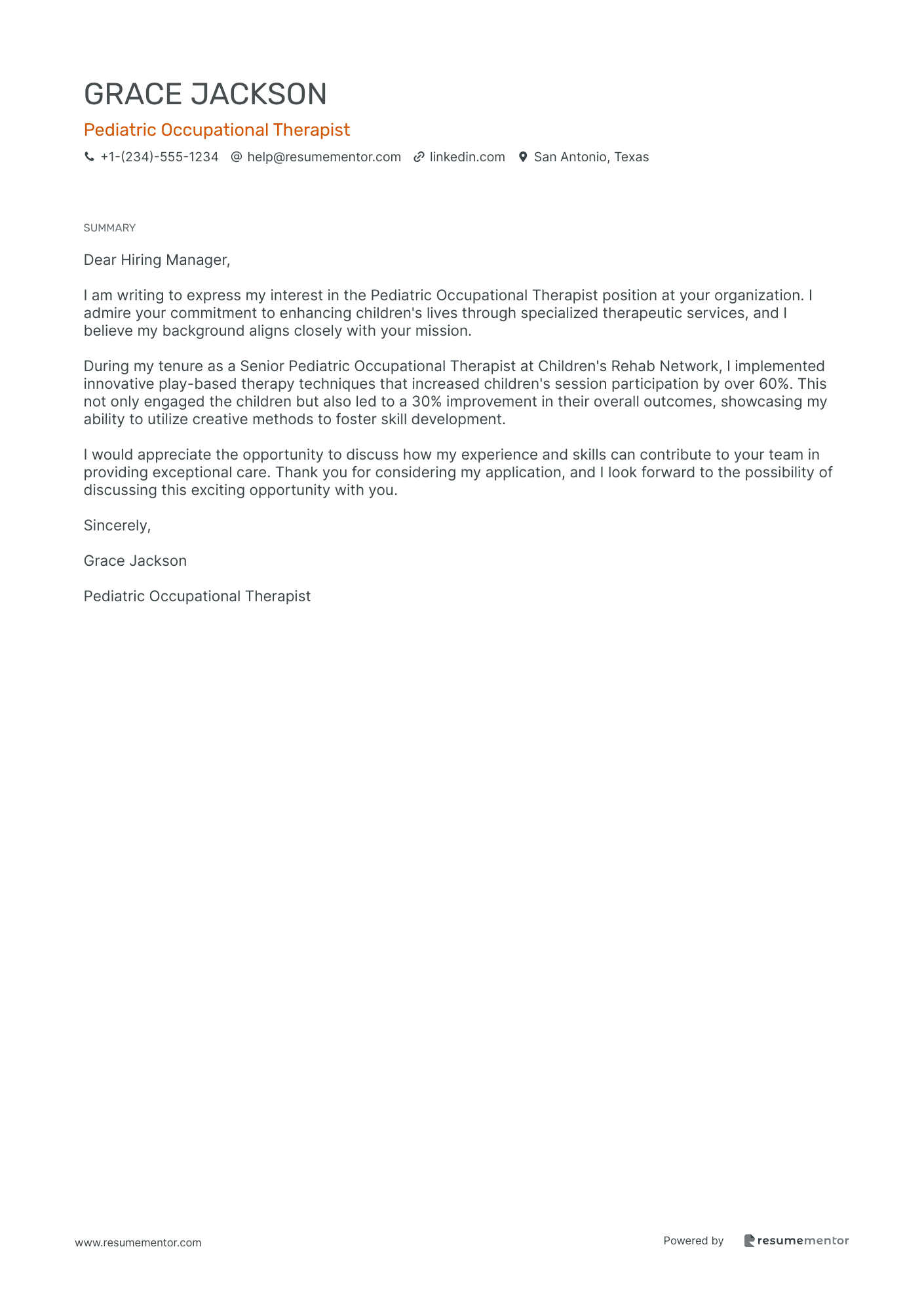
Pediatric Occupational Therapist

Occupational Therapist for Geriatric Care cover letter sample
Neurological Rehabilitation Occupational Therapist cover letter sample
Mental Health Occupational Therapist cover letter sample
Orthopedic Occupational Therapist cover letter sample
Occupational Therapist for Autism Spectrum Disorders cover letter sample
Hand Therapy Specialist Occupational Therapist cover letter sample
School-Based Occupational Therapist cover letter sample
Home Health Occupational Therapist cover letter sample
Occupational Therapist for Sensory Processing Disorders cover letter sample
Pediatric Occupational Therapist cover letter sample
Related Articles

Continue Reading
Check more recommended readings to get the job of your dreams.
Resume
Resources
Tools
© 2026. All rights reserved.
Made with love by people who care.
